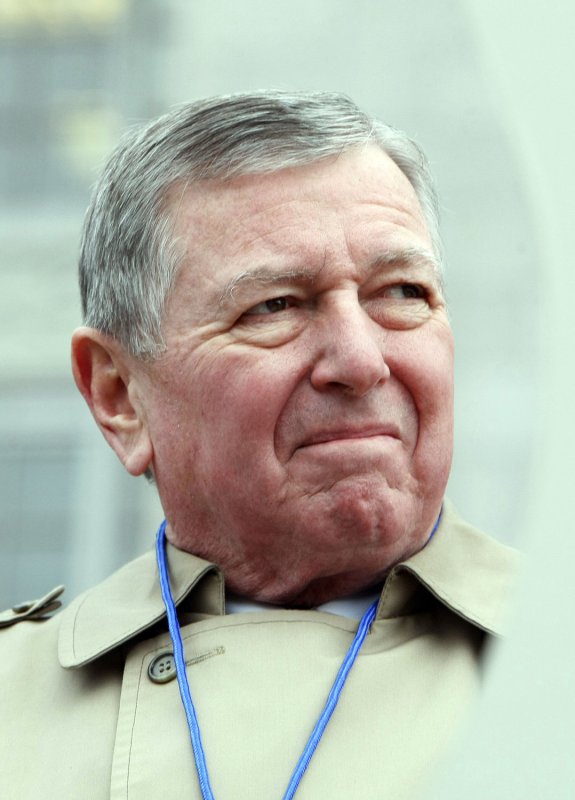The U.S. Supreme Court heard arguments about whether former Attorney General John Ashcroft could be personally liable in the detention of an American Muslim. (UPI Photo/Bill Greenblatt) |
License Photo
WASHINGTON, March 3 (UPI) -- The U.S. Supreme Court heard arguments about whether former Attorney General John Ashcroft could be personally liable in the detention of an American Muslim.
Abdullah al-Kidd, a U.S. citizen, said his arrest in 2003 on a material witness warrant was bogus, claiming he was detained as part of a plan Ashcroft approved to arrest Muslim men the federal government suspected -- but could not prove -- were tied to terrorism, The Washington Post reported Thursday.
Ashcroft, President George W. Bush's attorney general from 2001 to 2005, has claimed legal immunity from the lawsuit, and the Obama administration is defending him. In oral arguments Wednesday, Acting Solicitor General Neal Katyal said Ashcroft cannot be held personally liable for actions he took while performing his job.
Kidd's attorney, American Civil Liberties Union lawyer Lee Gelernt, said his client should be allowed to prove that Ashcroft had a policy of misusing the material witness law, meant to ensure witnesses are available for trial, the Post reported.
Kidd, born Lavoni T. Kidd, converted to Islam while attending the University of Idaho, where he was a football standout. He was arrested as he boarded a plane bound for Saudi Arabia, where he planned to study.
During his weeks-long detention, Kidd alleged he was strip-searched, shackled, questioned without an attorney present and treated as a terrorist.
"There are allegations here that this man was kept awake, the lights shining in his cell for 24 hours, kept without clothes," Justice Ruth Bader Ginsburg said during the hearing that was supposed to focus on Ashcroft's immunity claim. "Now that doesn't sound like the way one would treat someone whose testimony you want."
Chief Justice John G. Roberts Jr. questioned whether prosecutors would back off their responsibilities if they could be held personally liable, the Post said.
"That type of burden is particularly heavy when you're talking about if they guess wrong, it comes out of their pocket," Roberts said. "And if I'm the officer in that situation, I say, 'Well, I'm just not going to run the risk of, you know, having to sell the house.'"















